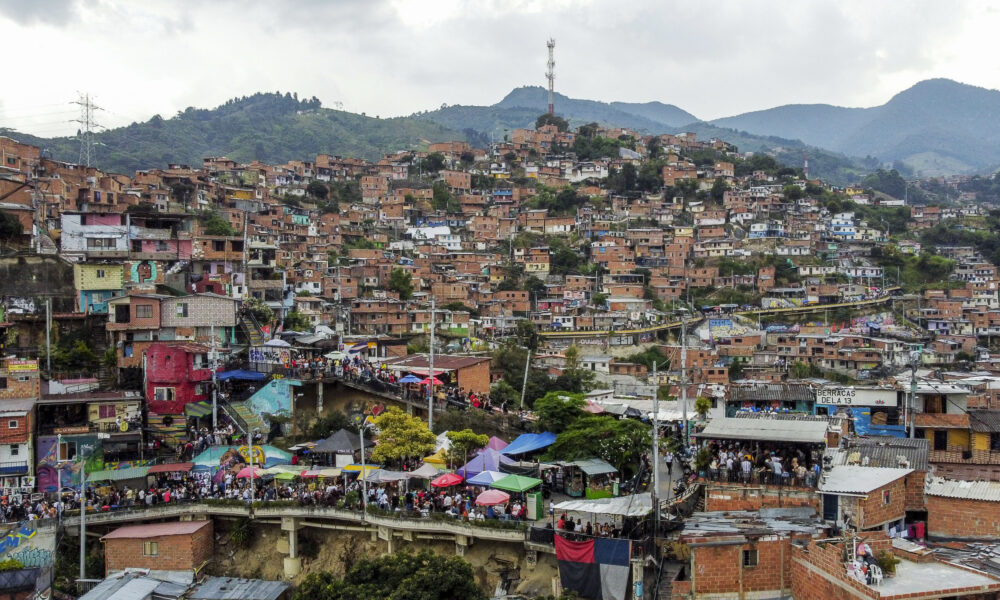International
Murder rate plummets amid ‘gangster peace’ in Medellin
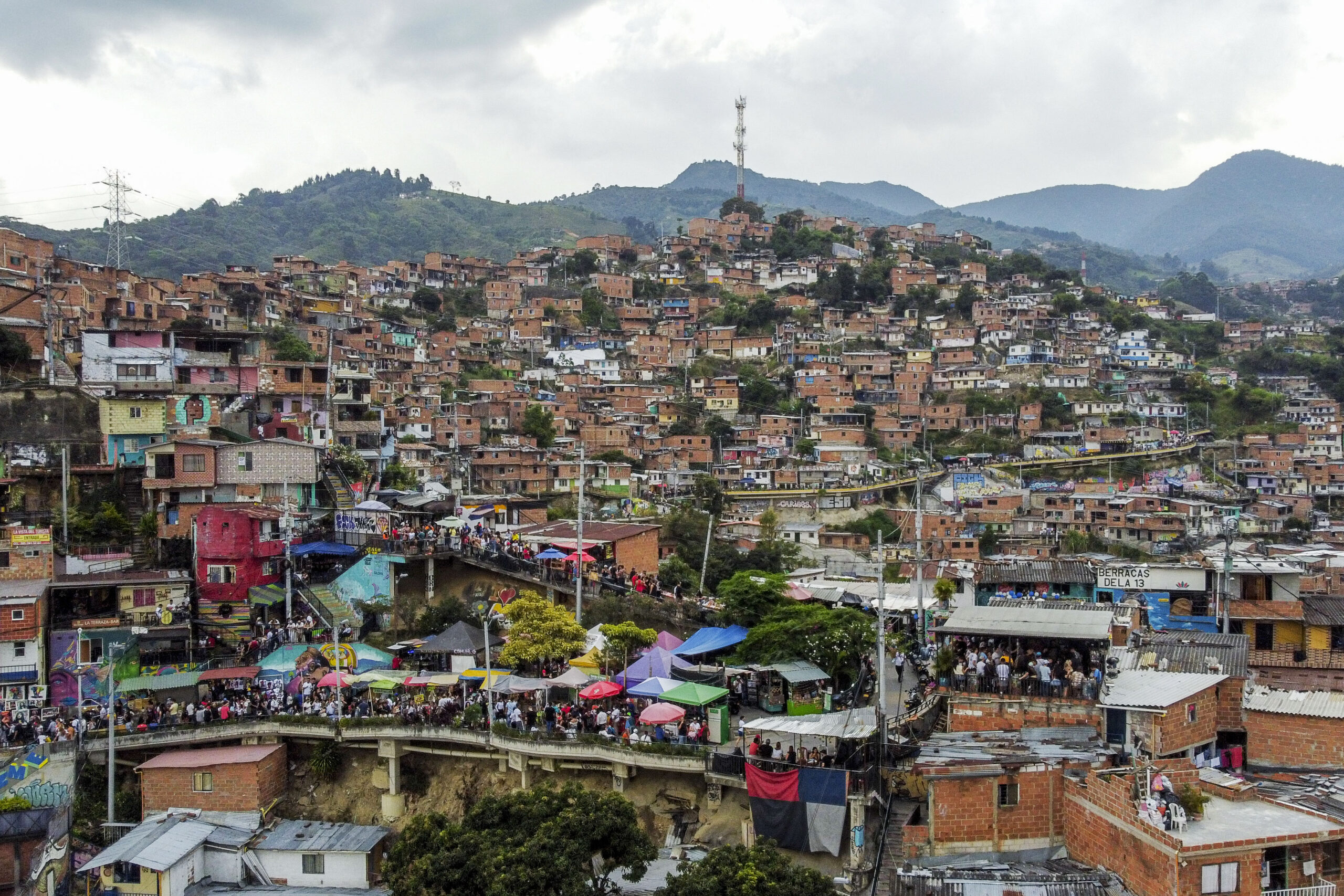
| By AFP | Hervé Bar |
Seven days without a single murder… The month of August marked a security record for Colombia’s second city Medellin, the onetime fiefdom of infamous drug lord Pablo Escobar.
“In Medellin, security is measured in lives” saved, said Mayor Daniel Quintero as he welcomed the breakthrough.
Medellin has seen a vertiginous drop in homicides by 97 percent in the 30 years since Escobar’s death, transforming what used to be one of the most violent cities in the world into a popular tourist destination.
The success is attributed in large part to an unofficial but mutually beneficial understanding between narco gangs, paramilitaries and the security services.
“Peace is good for business,” explained Medellin drug dealer “Joaquin” (not his real name) of the traffickers’ motivation for avoiding violence.
Joaquin is 37 years old — two of those spent behind bars. He wears an oversized baseball cap and sagging jeans.
A Beretta pistol peaks out from under his hoodie.
Joaquin is a “capo,” a junior boss supervising drug trafficking in the streets of “Comuna 6,” a poor neighborhood perched on a mountain slope in Medellin’s northwest.
He belongs to a gang, which he declined to name, that follows the rules imposed by an organized crime “federation” known as the “Oficina de Envigado” or the “Office of Envigado” after the name of a nearby town.
Joaquin claimed the Oficina and its member gangs acted “in solidarity with the community.”
This included meting out “parallel justice” when the system fails them.
“Escobar? He was much too violent. Too many deaths for nothing,” Joaquin told AFP.
‘The population with us’
“Everyone lives in peace on our territory,” said the capo, keen to portray himself as a good Samaritan.
“We do not want to frighten the traders and the people. We need the population with us.”
Thirty years after Escobar was shot dead on a Medellin rooftop while trying to evade capture, the drug trade still dominates many poor neighborhoods of the city of nearly three million people.
A stone’s throw from a football pitch where mothers watch their children play, heavy foot traffic at a small, nondescript house indicates the presence of a drug den.
A black garbage bag covers the window where money trades hands. The purchased merchandise drops down from another floor in a tin can on the end of a string.
A variety of product can be found here: marijuana, cocaine and “tucibi” or “basuco” — two cheap and particularly toxic new drugs akin to unrefined “crack.”
“Everything is organized, it’s like a business. There are those who take care of the sale, the logistics, the soldiers. The bosses pay our salaries, we do the job,” said Joaquin.
He and his colleagues move with incredible ease and assurance through the maze of sloping alleys and small, rickety brick houses. Neighborhood teenagers skulk around, acting as security.
Joaquin and his accomplices pop into one shop after another, shaking hands with acquaintances everywhere while they casually slip a gun into a bag here, deliver a package there.
For the most part, Medellin’s dealers are able to operate in peace due to an understanding among rival gangs as well as with members of the security forces — many of them on the take.
As long as they keep the streets peaceful, the gangs say police turn a blind eye to their lucrative illegal dealings.
Joaquin calls it a “gangster peace.”
“There is nothing better than peace,” added “Javier,” an associate who met up with Joaquin and another colleague in a squatted house.
They pack out their guns on a table between religious trinkets in a filthy, lightless living room where horse posters vie with a crude rendition of the Last Supper on the wall.
“Every group manages its territory as it wishes… The bosses talk among themselves. Everything is arranged calmly,” said Javier.
– ‘City of bandits’ –
After Escobar’s demise, the face of organized crime in Medellin changed. Long controlled by a single cartel, the drug trade is now shared between several gangs under the umbrella of the Office.
The gangs had previously collaborated with paramilitary groups and the security forces to help bring an end to Escobar’s Medellin Cartel and oust leftist guerrilla groups that had tried to fill the power void it left.
As things settled down and every group found its place in the new reality, Medellin’s homicide rate dropped from 350 per 100,000 inhabitants in 1992 to 10.2 per 100,000 so far this year — nearly half the national average.
“The armed groups set the peace and war agenda in the city,” said Luis Fernando Quijano, director of the Corporation for Peace and Social Development, an NGO.
Colombia’s new leftist president, Gustavo Petro, has vowed to bring “total peace” to conflict- and crime-ridden Colombia, including by offering an amnesty to gangsters willing to give themselves up and abandon the trade.
“We are willing to listen. We will do what the bosses decide,” Pedro said of the plan.
But for Joaquin, “to think that everyone will give themselves up is a dream.”
“Never forget one thing: Medellin is and will always be the city of bandits,” he insisted.
International
Two fans killed in gate collapse outside Chile’s Estadio Monumental
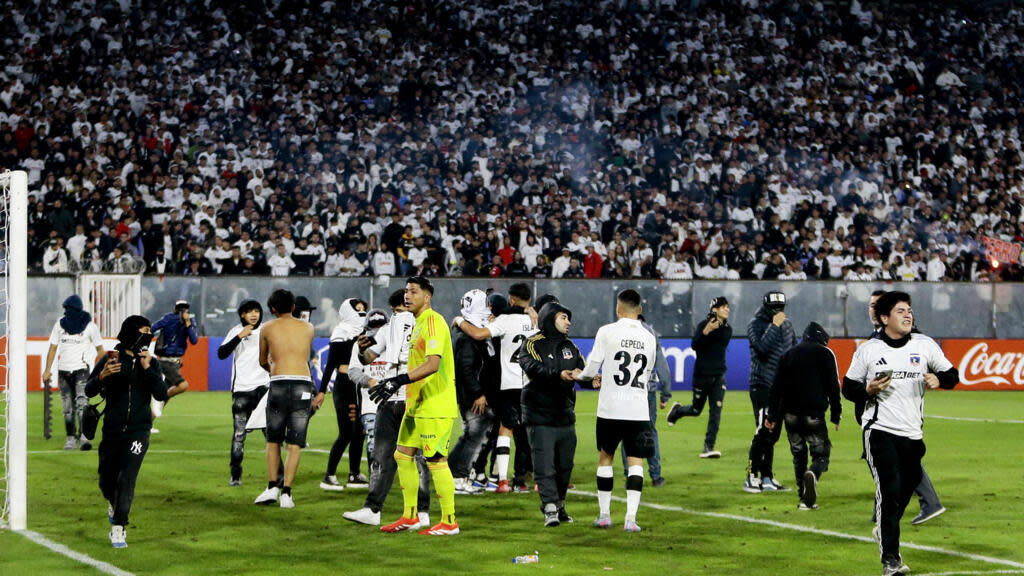
Two people lost their lives near the Estadio Monumental in Santiago, Chile, following a chaotic incident that occurred before the Copa Libertadores match between Colo Colo and Brazil’s Fortaleza on April 10. According to the Public Prosecutor’s Office, the victims were crushed after a fence on the stadium perimeter collapsed, though authorities are investigating whether a police armored vehicle may have played a role.
It was a black Thursday at Chile’s Estadio Monumental. Two local fans died outside the stadium after a yet-unclarified incident caused a metal gate to fall on them, leading to fatal asphyxiation.
Local media reports indicate that a group of fans attempted to force their way into the stadium before kickoff. In response, local police allegedly deployed armored vehicles to block the breach.
Preliminary reports cited by local newspapers and news agencies like EFE identify the victims as two young individuals—one 18 years old and the other just 13.
International
Dominican Republic mourns over 200 dead in Jet Set nightclub collapse
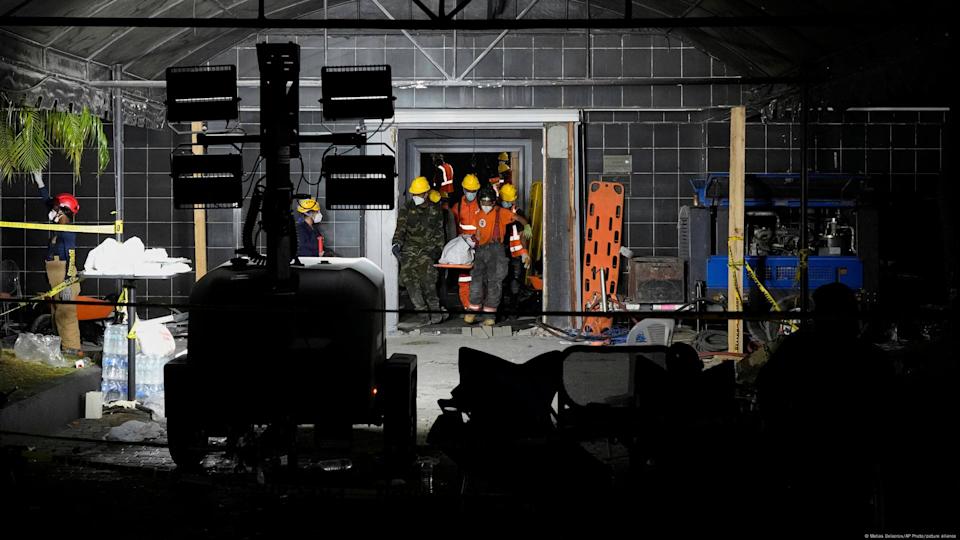
On Thursday, April 10, 2025, the Dominican Republic began mourning the more than 200 victims of the collapse of Jet Set nightclub in Santo Domingo, although many families are still desperately waiting for the remains of their loved ones.
The roof of the Jet Set club collapsed in the early hours of Tuesday, April 8, during a live performance by iconic merengue singer Rubby Pérez.
Rescue workers were completing the recovery of human remains from beneath the rubble of corrugated metal and steel beams, as search efforts ended with no further hope of finding survivors.
Around the morgue, the atmosphere was one of grief, anguish, and despair. A list of the deceased was posted on a canvas covering a nearby tent, where crowds gathered in distress. Health Minister Víctor Atallah stated that forensic teams are working at full capacity and urged patience. “No one will go unidentified, and no one will be left without answers,” he promised. “We will turn over every last stone if we have to.”
The tragic collapse also claimed the lives of several foreigners, including a significant number of Venezuelan nationals who were present at the club, according to local newspaper Listín Diario. The outlet reported the official death toll at 221, which included one Haitian, two French nationals, one Italian, and one Kenyan.
Meanwhile, relatives, friends, and fans of Rubby Pérez released white balloons outside the National Theater shortly before the hearse departed with the remains of the beloved singer, known for hits like “Enamorado de ella” and “Buscando tus besos.” Draped over his coffin were both the Dominican and Venezuelan flags, the latter symbolizing the country where his fame took off.
International
Venezuelan oil shipments resume after tariff-induced delays
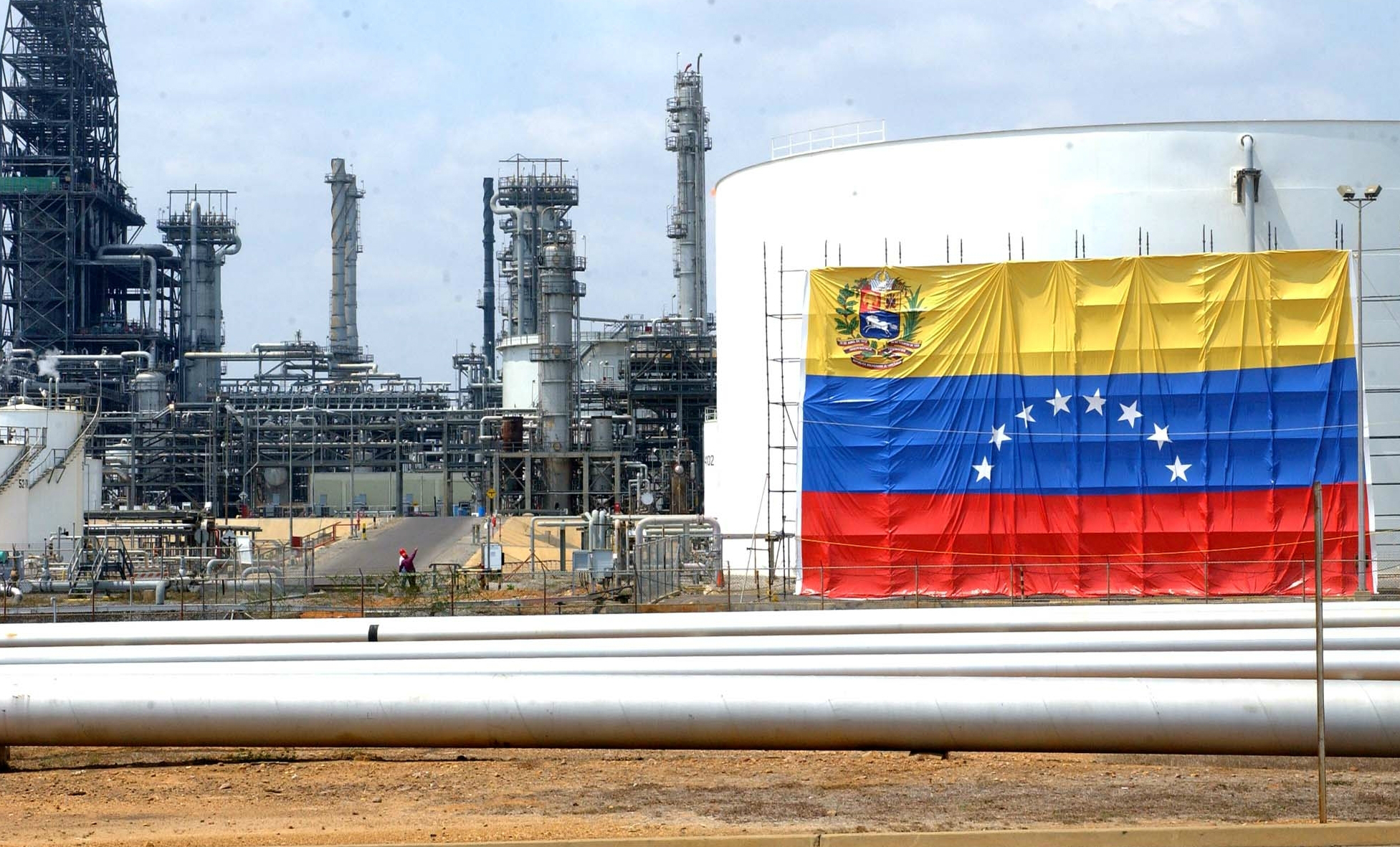
Many buyers of Venezuelan oil have resumed loading tankers after a week of pauses and delays at the country’s ports, caused by tariffs imposed by President Donald Trump on importers of crude from the OPEC member nation, according to shipping data and documents.
In March, the United States gave Chevron and other foreign partners and clients of Venezuela’s state oil company, PDVSA, until May 27 to gradually wind down operations and cease crude exports from the country. Days later, Washington imposed tariffs on buyers of Venezuelan oil and gas.
The measures triggered the suspension of some shipments at the country’s main oil port, Jose, and caused delays at smaller terminals. Many vessels that had left the Jose port and moved away from the coast amid the announcement of the measures have since returned to complete their loadings. In recent days, tankers have begun departing Venezuelan waters en route to destinations such as India and China, according to data and internal documents from PDVSA.
“There was a moment of panic when ships pulled away, but they later received instructions to finish loading,” said a source at PDVSA.
-

 Central America4 days ago
Central America4 days agoHonduras Hosts CELAC Summit Amid Regional Concern Over U.S. Deportations
-

 International3 days ago
International3 days agoRussia and US to Meet in Istanbul for Diplomatic Talks on April 10
-

 Central America20 hours ago
Central America20 hours agoNicaragua seeks ICJ intervention in Gaza conflict amid escalating violations
-

 Central America3 days ago
Central America3 days agoAudit Exposes Major Breaches in Panama Canal Port Concession, $300 Million Owed to State
-

 International4 days ago
International4 days agoTeachers in Southern Mexico Bring Education to Stranded Migrant Children
-
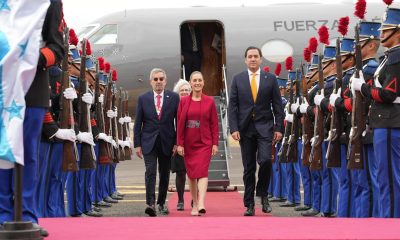
 Central America2 days ago
Central America2 days agoMexico’s president proposes regional economic summit at CELAC
-

 Central America4 days ago
Central America4 days agoMulino and Orsi Highlight Shared Vision After Panama Joins Mercosur as Associate State
-

 International9 hours ago
International9 hours agoDominican Republic mourns over 200 dead in Jet Set nightclub collapse
-
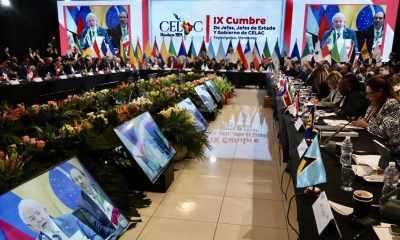
 Central America2 days ago
Central America2 days agoColombia to host fourth EU-CELAC Summit in November
-

 International2 days ago
International2 days agoMerengue concert turns to mourning as Jet Set collapse claims 136 lives
-

 Central America4 days ago
Central America4 days agoTrump Administration Asks Supreme Court to Block Return of Deported Salvadoran
-

 Sports3 days ago
Sports3 days agoNeymar Returns to Santos Training After Month-Long Injury Layoff
-
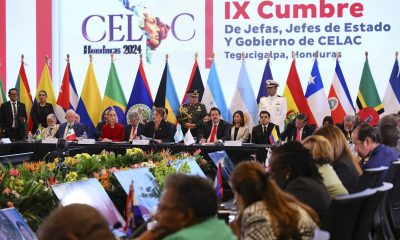
 Central America2 days ago
Central America2 days agoCELAC condemns unilateral sanctions in ‘Tegucigalpa Declaration’
-

 International3 days ago
International3 days agoMaduro Announces Economic Emergency Decree Amid Growing Tensions with the U.S.
-

 International3 days ago
International3 days agoTransgender Student Arrested at Florida Capitol for Using Women’s Restroom Under New State Law
-

 International20 hours ago
International20 hours agoItalian biologist found dead in Colombia; investigation underway
-

 Central America20 hours ago
Central America20 hours agoU.S. Government says deported migrants should remain in El Salvador for life
-

 International3 days ago
International3 days agoScience Brings Back the Extinct Direwolf with Successful De-Extinction Project
-

 International20 hours ago
International20 hours agoMaduro signs Economic Emergency Decree to counter U.S. sanctions on Venezuela
-
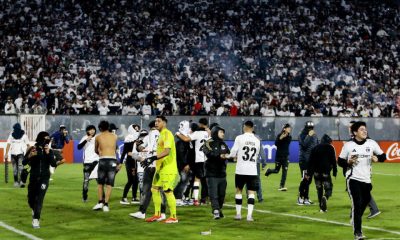
 International9 hours ago
International9 hours agoTwo fans killed in gate collapse outside Chile’s Estadio Monumental
-

 International9 hours ago
International9 hours agoVenezuelan oil shipments resume after tariff-induced delays
-
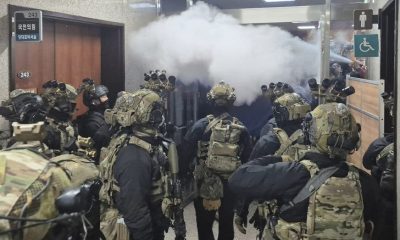
 International9 hours ago
International9 hours agoConstitutional Court Removes Yoon: Lee Jae-myung’s Rise Sparks Warnings of a Radical Shift








